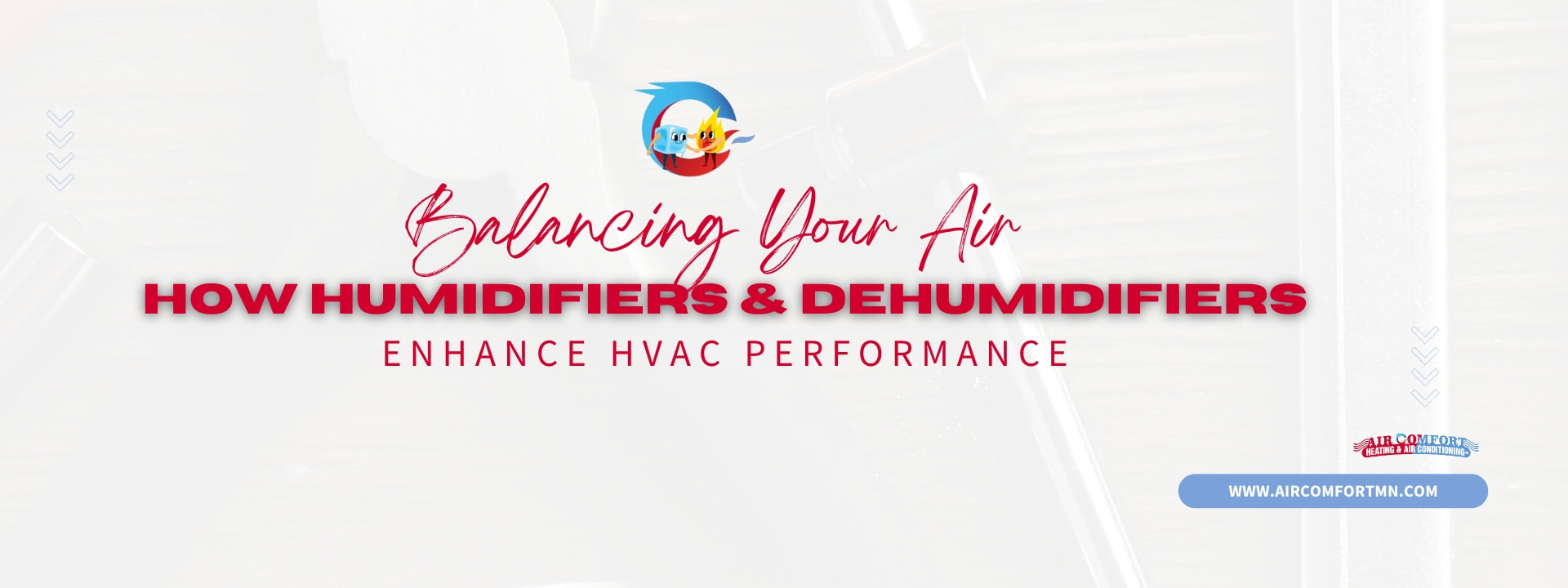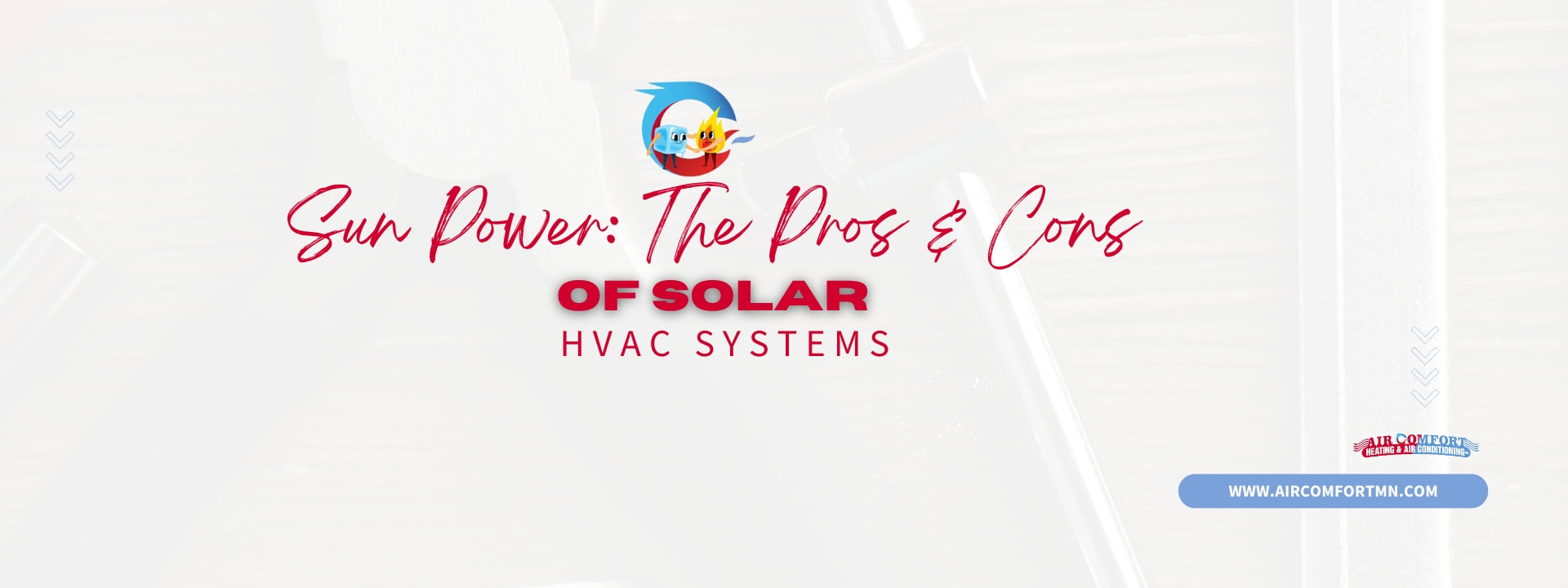|
Maintaining the ideal humidity level in your home isn't just about comfort—it can impact your health, the durability of your home furnishings, and even the efficiency of your HVAC system. That's where humidifiers and dehumidifiers come into play. These tools are crucial for creating a comfortable living environment, especially in extreme weather conditions. Let's delve into how these devices work with your HVAC system to enhance your home's atmosphere and why they're a worthwhile addition to any home.
What are Humidifiers and Dehumidifiers? Humidifiers are devices designed to add moisture to the air, which is particularly beneficial in dry climates or during cold winter months when heating systems tend to dry out the air inside your home. By maintaining the moisture content in the air, humidifiers help prevent problems associated with dry air, such as dry skin, irritation of the respiratory tract, and increased static electricity. Dehumidifiers, on the other hand, remove excess moisture from the air, which can be especially useful in damp climates or during hot, humid summers. Excess humidity can make your home feel stuffy and can contribute to the growth of mold and mildew. Dehumidifiers help maintain a comfortable and healthy environment by controlling moisture levels. How Humidifiers Work with Your HVAC When integrated into your HVAC system, humidifiers add moisture directly into the airflow, distributing it evenly throughout your home. This integration ensures that your living space maintains optimal humidity levels automatically, without the need for standalone units in various rooms. The result is consistent air quality that enhances comfort and preserves the health of everyone in the home. How Dehumidifiers Work with Your HVAC Similarly, dehumidifiers can be integrated into your HVAC system to remove moisture from the air before it is circulated through your home. This is particularly important in areas prone to high humidity, as it prevents the overworking of your air conditioner, which can occur when it has to cool both the air and condense the moisture. This not only saves on energy costs but also reduces wear and tear on the system. Benefits of Humidity ControlProper humidity control offers several benefits:
Choosing the Right System for Your Home Selecting the right humidifier or dehumidifier depends on several factors, including the size of your home, the existing HVAC system, and your specific climate needs. It’s important to consult with HVAC professionals who can assess your home and recommend the best humidity control solutions that are compatible with your system. Installation and Maintenance Proper installation and regular maintenance of humidifiers and dehumidifiers are key to ensuring they work effectively and last long. This includes regular cleaning and replacement of filters to prevent the buildup of bacteria and mold. Whether you're combating dry winter air or sticky summer humidity, integrating a humidifier or dehumidifier with your HVAC system can significantly improve the air quality and comfort of your home. With the right setup, you can enjoy a healthier, more comfortable living environment and even save on your energy bills. Ready to balance the air in your home? Contact Air Comfort today.
0 Comments
As sustainability becomes more crucial in our daily lives, homeowners are increasingly turning to solar technology to power their homes. Solar HVAC systems, which use solar energy to heat and cool homes, are gaining popularity for their eco-friendliness and potential cost savings. However, like any technology, they come with both advantages and challenges. Let's delve into the pros and cons of solar HVAC systems to help you determine if they're the right fit for your home.
What is a Solar HVAC System? A solar HVAC system integrates solar panels with traditional heating and cooling mechanisms. The solar panels collect solar energy and convert it into electrical power, which then operates the HVAC system. This setup can significantly reduce reliance on grid electricity, tapping into the abundant and free energy provided by the sun. Pros of Solar HVAC Systems Energy Savings: One of the most appealing aspects of solar HVAC systems is the potential for substantial energy savings. By using solar power, these systems can reduce your electricity bills, especially during peak usage times. Environmental Impact: Solar HVAC systems contribute to a lower carbon footprint. Using renewable solar energy instead of fossil fuels to power your HVAC system helps reduce greenhouse gas emissions, aligning with global efforts to combat climate change. Increased Home Value: Homes equipped with solar energy systems often see an increase in property value. Buyers are increasingly looking for homes with sustainable features that promise long-term savings. Long-Term Savings: Although the initial investment might be high, the long-term savings from reduced energy bills can offset the upfront costs. Additionally, many governments offer incentives for installing solar energy systems, making it a financially viable option over time. Cons of Solar HVAC Systems High Initial Investment: The major barrier for many homeowners is the high initial cost of purchasing and installing solar panels and integrating them with an HVAC system. Dependence on Weather: The efficiency of solar HVAC systems heavily depends on sunlight availability. In areas with less sunny weather or during periods with shorter daylight hours, the system's efficiency might decrease, requiring reliance on grid electricity. Maintenance: Solar panels and the additional components of a solar HVAC system can require maintenance more frequently than traditional systems. This includes keeping panels clean and free of debris to maintain optimal performance. Space Requirements: Installing a sufficient number of solar panels to effectively power an HVAC system requires adequate roof space. Homes with limited or shaded roof areas might face challenges in installing a solar HVAC system. Considerations Before Installation Before deciding to install a solar HVAC system, consider your local climate, the orientation and condition of your roof, and your current energy needs. It’s also beneficial to consult with a professional to analyze your home’s suitability for a solar HVAC system and to understand the potential return on investment. Solar HVAC systems offer a promising alternative for those looking to reduce their environmental impact and energy costs. While they require a significant initial investment and are dependent on geographical and environmental factors, the long-term benefits can be substantial. If you’re exploring ways to make your home more sustainable, a solar HVAC system could be a step in the right direction. Interested in learning more about solar HVAC systems or considering an installation? Contact Air Comfort today. |
AuthorVarious. Archives
May 2024
Categories |
CALL NOW: 763-753-6623
Privacy Policy l Cookie Policy l Conditions of Use l Notice and Take Down Policy l Website Accessibility Policy
© 2024 The content on this website is owned by us and our licensors. Do not copy any content (including images) without our consent.
Website managed by Go Savvy Social
Privacy Policy l Cookie Policy l Conditions of Use l Notice and Take Down Policy l Website Accessibility Policy
© 2024 The content on this website is owned by us and our licensors. Do not copy any content (including images) without our consent.
Website managed by Go Savvy Social



 RSS Feed
RSS Feed